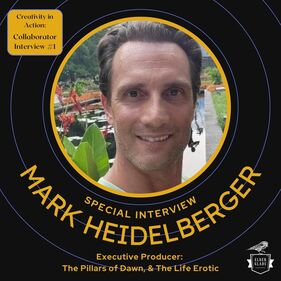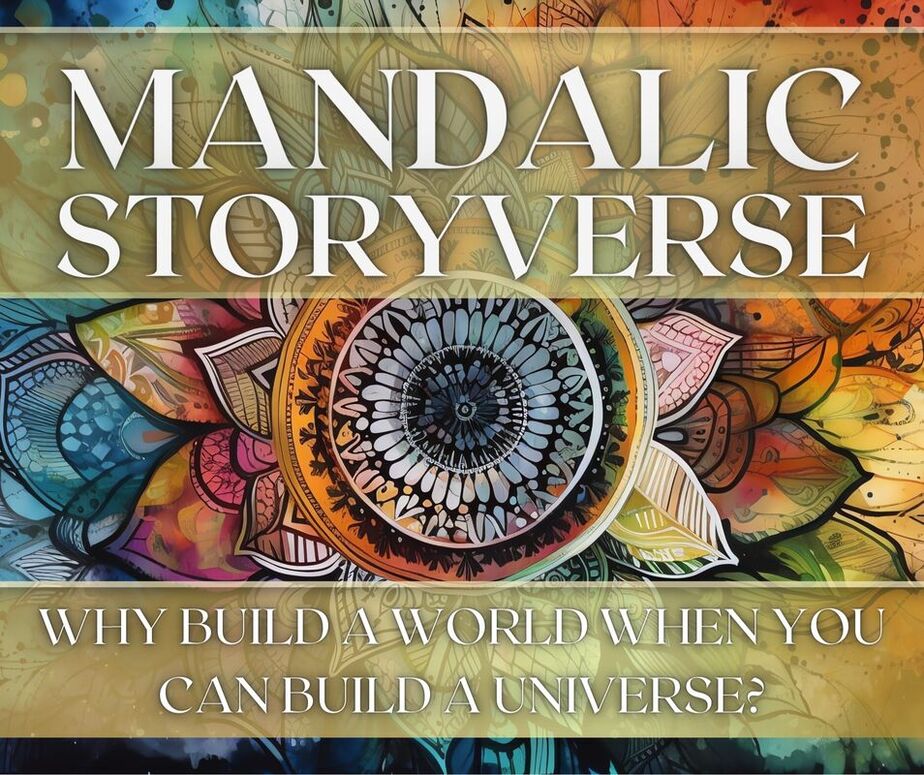 EGP: Can you tell us a bit about yourself? What do you do and how did you get started? MH: Well, I’m a freelance film and television producer. Which is to say I’m a glutton for punishment. I usually get hired by a client who has material, or sometimes just an idea, that they want to turn into a movie or show. I work on it with them until it’s up to snuff, then I help bring on elements like actors, directors and crew, manage the financing, and oversee the creative and logistical process all the way to completion of the project. It’s kind of like being the conductor of an orchestra. I don’t necessarily play any instrument, but I pick the music, then I bring all these talented musicians together and make them play. And I know just enough about each instrument that if something’s out of tune, I can fix it. As far as my humble beginnings, I started working in entertainment about 23 years ago, mainly producing music videos and commercials under a banner I co-founded and ran called Treasure Entertainment. Soon, we started expanding into other areas like music management, literary management and feature film production. I repped a number of film and TV writers and made several low budget films there until 2011 when I finally quit to go freelance. Which was just a better fit for me, as I could focus more on content creation with other filmmakers now that the time-suck of running a company was behind me. EGP: How is working with preexisting IP different from developing original material? MH: Oh, they’re very different. And on a number of levels. With IP, a lot of the core elements have already been created, so you don’t have to spend as much time in ideation. Even if it’s just a magazine article or a short story, you know who your main characters are, the central conflict and the world you’re in. But now it’s a matter of figuring out how to make those elements work within a different medium. For example, in a novel, you can spend six pages discussing a character’s mindset, but that won’t fly in a screenplay where the key is minimalism—saying as much as you can in as few words as you can and making sure it’s visual. Also, preexisting IP often has a fan base already, so you have to weigh how true you want to be to the source material in order to appease those fans against how much you want to change to fit the medium, attract new fans, fit your production budget or whatever the case may be. Adapting formats like books for film and TV can be a challenge because you’ll inevitably have to stray from the book in some ways, if only by cutting out a lot of excess fat that doesn’t translate well on screen, knowing some fans are going to hate you for it. And finally, you have a slightly more complicated legal process with source material—something lawyers in Hollywood like to call securing “chain of title.” Basically, that just means making sure you control all rights to adapt the material going back to the original source. Anything that’s copyrighted or protected by personal privacy rights should be locked up contractually before starting the adaptation process. But with original material, you just start writing and copyright it when you’re done. EGP: What specifically about the adaptation process excites you? And what about it, if anything, stifles you? MH: To be sure, I love the creative process of filmmaking, whether it’s original or adapted material. Same with genre—I love romance, comedy, horror, sci-fi—just so long as it’s a good story. So I’m really kind of agnostic in those ways. But I will say that the adaptation process offers a fun and unique challenge for me—that is trying to take what the original creator did and, while staying true to their story and characters, figure out how to translate that to the visual medium of film and television. It’s a very different process where you are given a framework, and then you must construct something new within that framework. It allows for all sorts of creative choices that are specific to adaptations, like what should stay and what should go, or what needs to be shaped for a new audience while placating the original audience. And this is very exciting to someone like me who is creative, but also thrives on structure. The biggest challenge is that you have to do all this while making the creator of the original material feel comfortable, because an adversarial relationship there will often translate onscreen. And not in a good way. EGP: What do you wish authors knew about the adaptation process in Hollywood? MH: I think the biggest issue for authors is letting go. Book writing is often a very isolated process. You can go off and write a novel completely on your own, and with self-publishing services nowadays, you can even get the artwork done, print thousands of copies and get it on shelves, all without ever really having to deal with another creative. But filmmaking is by its very nature a collaborative process. No one is going to make a movie or TV show by themselves. It takes hundreds. And the entertainment industry has its own (often unspoken) codes and rules and wants. A good producer can help you, as an author, shape your material to fit what Hollywood wants, but you will probably have to make choices you didn’t want or expect to make. Compromises that, perhaps, you said you would never make. Hollywood is a fickle mistress, and getting stuff made is super hard, so the more flexible you can be without undermining the integrity of your story, the better chance you have of seeing your adaptation hit screens. EGP: What are some of the unique challenges of working with superstories designed for transmedia, and mandalic storyverse structures? MH: Wow, that’s a mouthful! So we’re talking about worldbuilding, like Marvel, right? I love the term “storyverse,” by the way. It’s a great portmanteau word that really conveys the essence of building a narrative universe. But of course such stories have their own unique set of challenges. The most obvious one is where is your universe going? And how do you plan for expanded stories five, ten, twenty years down the line? It’s definitely hard, as you see even big companies like Disney and Warner Bros struggle with it. There’s a consistency of vision that can be hard to maintain when dealing with ever-shifting studio objectives and a revolving door of execs with their own eclectic tastes. Not to mention times change and so do audience tastes. There’s no surefire way to eliminate hiccups here, but creators can definitely mitigate issues down the road by laying out detailed written schematics of their universe—either as a bible or a treatment or whatever—and ensuring they maintain as much creative control of the work as possible. Planning for a shift to other media formats is also a challenge, not only because the requirements of, say, a comic book can be very different than a toy line, which can be different from a video game, which can be different from a limited cable series, but also because very few producers have meaningful experience in all of these areas. If you can work with stakeholders that specialize in each medium early enough in the development process, you’re going to be better equipped moving forward to adapt to the needs of that medium. I don’t think I’m saying anything earth-shattering here except to reiterate the importance of effectively communicating the scope, style, rules, characters and goals of your storyverse from the outset. If done right, you’ll eventually be able to take your hands off the wheel knowing that others can take over and steer the ship where you want it to go. EGP: How do you feel about the rapid emergence of AI in the literary world? Is it helpful, harmful or a bit of both? And why? MH: I actually just wrote an article about this for WritersWeekly. A lot of people see AI as this existential threat to human existence. Or in this case, to writers. But AI is not going anywhere, so we need to figure out how to use it effectively. It’s not good or bad; it’s just a tool. Take a hammer. It can be used to build a house or to hurt someone. It’s a thing. It’s how we apply it that will be the differentiator. Just like we don’t blame pencils for making spelling mistakes, we can’t blame AI for how people misappropriate it. Look, AI can’t replace humans because it’s not originative—you need to input information created by humans to get something back — and it lacks the emotional intelligence and reasoning of humans. It’s usually obvious when you read things that were written by AI because it all sounds rote and stiff, right? So you need a human to rewrite it anyway. But if writers eschew overreliance on it and instead use it to accentuate their strengths, whether to assist in ideation or plug holes in structure mapping or increase efficiency by providing real-time dialogue suggestions, it could become just another tool in the writer’s arsenal, like Google search or spellcheck or WordPress. The other big problem with AI right now is the issue of copyright. The US Copyright Office has held that elements created by AI are not protected by copyright, and recent court decisions have affirmed as much. But there are still so many gray areas to be worked out. Like is the use of protected material for machine learning a violation of copyright? And who owns the copyright of an AI-generated work derived from other works? The copyright holders of those original works? So be prepared to see more litigation around this issue in the years to come. EGP: If you could change one thing about Hollywood, what would it be? MH: I would lose the walled-off, nepotistic, protectionist system we currently have, and replace it with one that creates better access for artists and rewards merit. I think such a system would help eliminate a lot of the homogeneity and derivation we see coming out of Hollywood, perhaps ushering in a new golden age where deserving works that would’ve otherwise gone undiscovered get their moment in the sun. I know it’s not realistic, but a guy can dream, can’t he? I mean, after all, that’s why I work in this business. EGP: Thank you so much for your time!  Mark Heidelberger, PGA Mark Heidelberger, PGA Before founding Treasure Entertainment, Mark held positions at Outlaw Productions, Film Roman and literary agency Ken Sherman & Associates. He graduated number one in his class with a Bachelor of Arts in Film Studies from UC Santa Barbara and earned a Master of Fine Arts in Motion Picture and Television Producing from the UCLA School of Theater, Film and Television. He is a member of the Producers Guild of America. Mark has been an active collaborator and developer on The Pillars of Dawn streaming series, and The Life Erotic adaptations. Discover more about Mark here. Be sure to check out his website for the latest news and updates on his upcoming projects.
0 Comments
12/6/2023 0 Comments Mandalic Storyverse Construction*Cross-posted from Athena’s blog at Athena-author.com
If you’re a world builder into large-scale storyverse builds, pop in and check out this latest blog on Mandalic Storyverse Construction. Why build a world when you can build a Storyverse? |
Archives
June 2024
CategoriesAll 5 Minute Creativity Adaptation News Collaborators Creativity Challenges Creativity In Action EGP Notes Entertainment News Interviews Launch News Prompts Storytelling Craft Storyverse The Life Erotic The Life Erotic Discovery Journals Twin Flame World Building Writing Craft |
Search by typing & pressing enter


 RSS Feed
RSS Feed